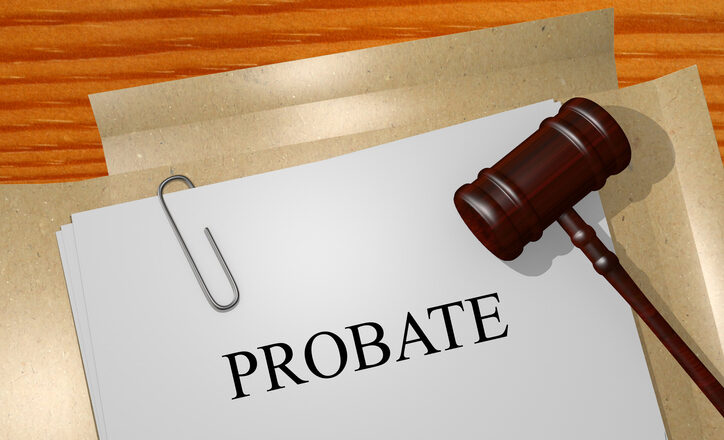The Probate Process: An Overview


The public process of reconciling the affairs of the deceased can be confusing and filled with terminology that is not typically used on a day to day basis. Understandably, grief can interfere with navigating probate and lots of misinformation floats around too, often fueled by state protocol variations and celebrity mishaps. Here is a helpful overview of what to expect during probate.
What Is Probate?
In essence, the public process of “putting affairs in order” is fairly straightforward, and many states even offer expedited protocols based on the circumstances and assets involved. Vanilla offers this overview of the typical probate process:
Put plainly, probate is the legal process that occurs after a person’s death. In probate, the court recognizes the validity of a Last Will and Testament (a “Will”) and appoints a personal representative for the decedent’s estate. The representative – also known as an executor or administrator – pays the decedent’s debts and then distributes the remaining assets to the beneficiaries. Though probate is simple to define – the validation and administration of a Will – people’s experiences with it can vary widely. This is due to variation in state laws, the quality (or existence) of the Will, and the decedent’s financial situation.
Usually, when there is a will, the executor designated in it initiates the probate process by filing the will in probate court. From there, although the protocols differ a bit by state, the probate process generally unfolds through these steps:
- The court validates the Will by acknowledging the Will’s existence, validity, and authenticity.
- The court officially appoints a personal representative who has been named in the Will. The personal representative oversees the administration of the Testator’s estate.
- The personal representative informs the beneficiaries and creditors of the Testator’s death and the Will’s existence.
- The personal representative determines the value of all assets and property.
- The personal representative pays off outstanding debts (including taxes) and files any required tax returns (e.g. the Testator’s income tax returns, estate income tax returns, estate tax returns).
- The personal representative distributes the remaining assets in the estate according to the Will.
Frequently, probate bonds are required by probate court judges. A probate bond is a type of fiduciary bond that protects the interests of the estate and its beneficiaries in accordance with state law until the probate process is completed. Learn more about probate and other fiduciary bonds right here. Colonial Surety makes it easy and speedy to obtain digital digital probate bonds which fulfill the specific requirements of courts in every state. At Colonial, the steps to obtaining probate bonds, as well as personal representative, administrator and executor bonds, are easy:get a quote online, fill out the information, and enter a payment method. Then, just print or e-file the bond right from your home or office—even while at court.
Dying Intestate?
When someone dies without a will, closure on their affairs is also handled in probate court, with the judge appointing a representative, often referred to as an administrator and the state laws of intestacy are followed, as experts explain:
The court will appoint an administrator to act on behalf of the decedent’s estate. An administrator differs from a personal representative in that they are selected by the court, but their duties and responsibilities are similar to a personal representative. The important thing to note here is that, because the decedent died intestate, the court chooses who oversees the administration of the decedent’s estate, not the decedent. The administrator uses the estate assets to satisfy the debts of the decedent. They also locate heirs. The probate court then determines the division of the intestate decedent’s estate, based on applicable state law. Most state laws divide property between the spouse and children, if both are then living.
If the court can’t locate heirs, or heirs do not step forward within a specified time period, then the intestate decedent’s assets are transferred to the state, known as escheatment.
Learn more about the duties of administrators and easily obtain administrator bonds right here: Administrators and Administrator Bonds. It is also helpful to know that some states, including New York and New Jersey, refer to probate court as surrogate court. Remember, whenever the Surrogate Court or Probate Court in any state requires a bond, Colonial Surety makes bonding easy and speedy.
Surrogate and Probate Court Bonds Right Here.
Probate Law?
Across the country, lawyers find that partnering with Colonial Surety speeds up the process whenever courts require bonds. Our online fiduciary bond portfolio includes: administrator, estate, executor, guardian, personal representative, probate, surrogate, trustee, conservator and more.
Colonial’s direct, fully digital, user-friendly system reduces the time, hassle and expense typically associated with antiquated bonding processes. For even more value added service, lawyers are invited to sign up for The Partnership Account® for Attorneys—a free business service that enables attorneys to easily coordinate, view, complete and e-file the court and fiduciary bonds clients need. Increase your efficiency—and lower costs for clients. See for yourself today:
The Partnership Account® for Attorneys.
Founded in 1930, Colonial Surety Company is a direct writer of a wide range of bonds and insurance products. Colonial is rated “A Excellent” by A.M. Best Company, U.S. Treasury listed, and licensed for business everywhere in the USA.

